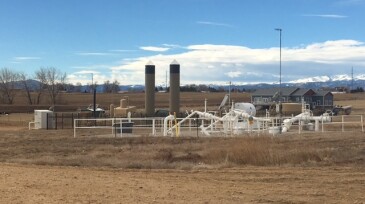Environment
This paper details a data-driven methodology applied in Indonesia to enhance flare-emission visibility and enable targeted reduction strategies by integrating real-time process data with engineering models.
This study presents the development of a biodegradable surfactant developed using principles of environmentally friendly chemistry from natural sources. The goal is to develop an effective and environmentally friendly surfactant that can emulsify and disperse oil to reduce its effects on marine environments.
This study ascertains the capital expenditure and operating expenditure associated with the reuse of existing facilities, specifically regarding a carbon capture and storage project being prepared in South Korea.
-
The commission unanimously approved the rule that requires oil and gas operators to install zero-bleed or zero-emission pneumatic devices for both new and existing operations.
-
The US Interior Department says native company missed deadline to conduct polar bear den assessment work ahead of planned geological activity.
-
The Norwegian energy company and the French utility say jointly developing low-carbon hydrogen will pave the way to achieving net-zero emissions in 2050.
-
The panel's chairman said it will renew its commitment to review equity concerns related to new energy projects.
-
Using renewable energy can help the oil and gas industry to reduce emissions while getting a stable, high-quality power supply. The renewable energy system can even be used to help the oil and gas facilities with enhanced oil recovery.
-
The partnership aims to speed up the decarbonization of seven global industries representing 30% of global emissions, which include steel, trucking, shipping, chemicals, cement, aluminum, and aviation.
-
DNV GL awarded Heerema Marine Contractors Statements of Feasibility for two concepts designed to reduce the noise of offshore structure installation.
-
Just a few weeks after the Colorado Oil and Gas Conservation Commission's final approval of a statewide 2,000-ft setback between new wells and some buildings, Boulder County commissioners have adopted even stricter requirements.
-
Brian Sullivan, the executive director of IPIECA, the global oil and gas industry association for advancing environmental and social performance, lays out the organization’s plans to adapt to a changing world while supporting the energy transition and sustainable development.
-
Some of the world’s largest oil companies are hoping to convince the US Supreme Court to decide whether they should be held liable for climate change.













